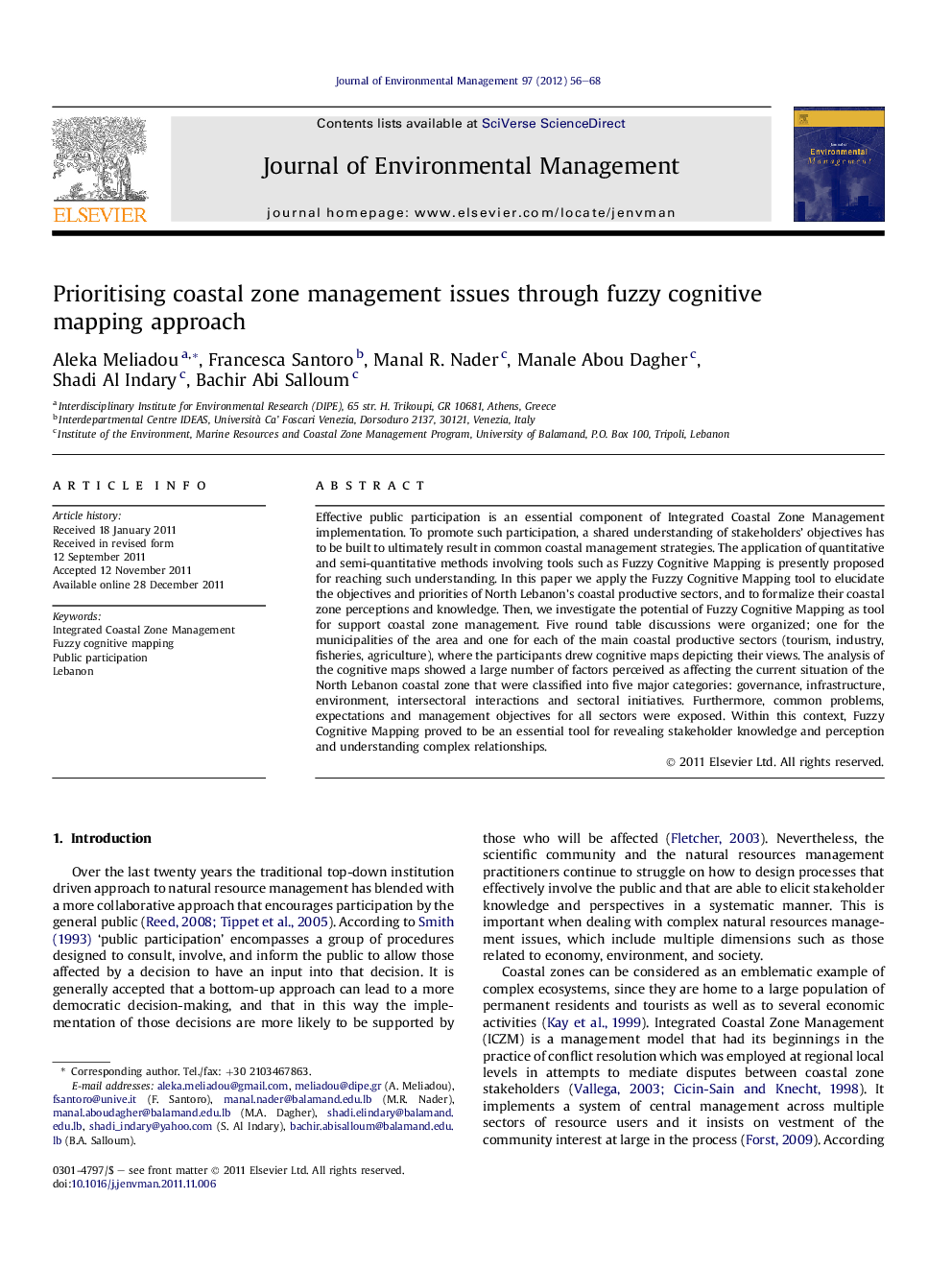| Article ID | Journal | Published Year | Pages | File Type |
|---|---|---|---|---|
| 1056867 | Journal of Environmental Management | 2012 | 13 Pages |
Effective public participation is an essential component of Integrated Coastal Zone Management implementation. To promote such participation, a shared understanding of stakeholders’ objectives has to be built to ultimately result in common coastal management strategies. The application of quantitative and semi-quantitative methods involving tools such as Fuzzy Cognitive Mapping is presently proposed for reaching such understanding. In this paper we apply the Fuzzy Cognitive Mapping tool to elucidate the objectives and priorities of North Lebanon’s coastal productive sectors, and to formalize their coastal zone perceptions and knowledge. Then, we investigate the potential of Fuzzy Cognitive Mapping as tool for support coastal zone management. Five round table discussions were organized; one for the municipalities of the area and one for each of the main coastal productive sectors (tourism, industry, fisheries, agriculture), where the participants drew cognitive maps depicting their views. The analysis of the cognitive maps showed a large number of factors perceived as affecting the current situation of the North Lebanon coastal zone that were classified into five major categories: governance, infrastructure, environment, intersectoral interactions and sectoral initiatives. Furthermore, common problems, expectations and management objectives for all sectors were exposed. Within this context, Fuzzy Cognitive Mapping proved to be an essential tool for revealing stakeholder knowledge and perception and understanding complex relationships.
► We model the stakeholders’ views in North Lebanon coastal zone for ICZM implementation. ► We use FCM to reveal stakeholders’ priorities and support coastal zone management. ► A large number of factors were classified into five major categories. ► Common problems, expectations and management objectives were exposed. ► FCM is a useful tool for understanding complex relationships.
